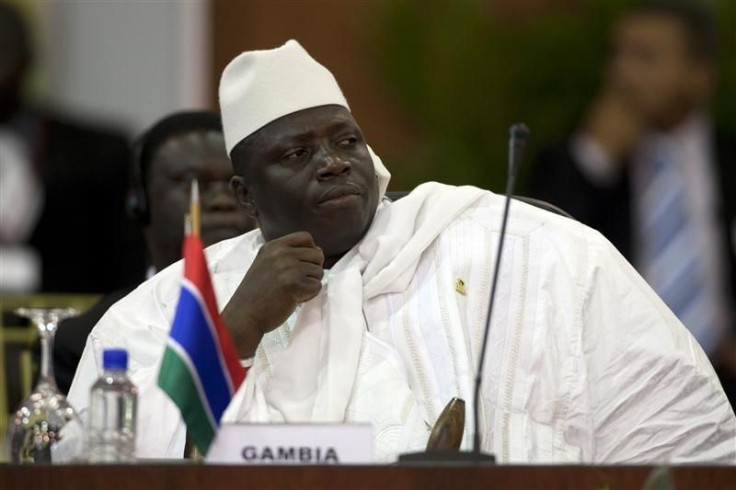Gambian President Lets Public Workers Take Friday Off … Forever!

What if your president passed a law granting you three-day weekends for the rest of your life, and you never had to work a Friday again?
That’s a reality for thousands of workers in Gambia, a tiny West African country whose President Yahya Jammeh just decreed a four-day work week for all public sector workers. That will affect schools, government institutions and infrastructure-management facilities, among others. Private businesses will continue to abide by the five-day week common to Western countries.
Friday is a holy day of rest for Muslims, who make up about 90 percent of Gambia’s population. But the decision to extend the work week was not based on religion alone; after all, Gambia is technically a secular state, and Jammeh has spoken out against Islamist extremism.
“This new arrangement will allow Gambians to devote more time to prayers, social activities and agriculture -- [to] going back to the land and [to] grow what we eat and eat what we grow, for a healthy and wealthy nation,” said Jammeh’s office in a statement, according to the BBC.
The four-day week involves lengthening each day so that total hours worked still amount to 40. Schools will have the option to hold classes on Saturday.
Critics charge that the change is unnecessarily disruptive and could result in a productivity loss, but Jammeh is not one to change his mind when faced with criticism.
Jammeh took power in a 1994 bloodless military coup, and has since gained a reputation for eccentricity. The president is known for his claims that certain herbs can cure AIDS, his practice of rounding up civilians suspected of witchcraft and his tendency to turn on his own officials when the mood strikes. He is also known for the honorific he has bestowed upon himself, which may be one of the world’s most elaborate: His Excellency Sheikh Professor Doctor President.
Freedom of the press is strictly limited in Gambia, and political opponents are persecuted.
While Jammeh has brought stability to his country, Gambia has seen sluggish development since he came to power. The national economy is highly dependent on international aid, and Jammeh may not be the best steward of those funds; he has been accused of spending wasteful amounts of money on pet projects and personal possessions. Nearly half the population lives below the poverty line according to CIA data, and food shortages in recent years -- including an officially recognized crop failure in 2011 and 2012 -- have led to a severe hunger crisis.
That hunger could be behind Jammeh’s decision to strike Friday from the work week, since it will allow public workers to spend more time farming. But that won’t do much to change the fact that rainfall in Gambia -- and the surrounding region -- has been lacking over the past two years, limiting farmers’ ability to produce crops no matter how many hours they devote to their land.
As enticing as an extra day off may sound, those free Fridays in Gambia might be just another ineffective policy from a calamitously capricious head of state.
© Copyright IBTimes 2024. All rights reserved.












